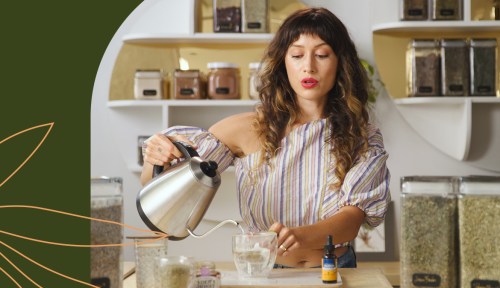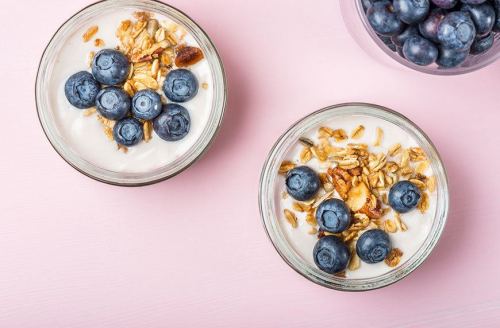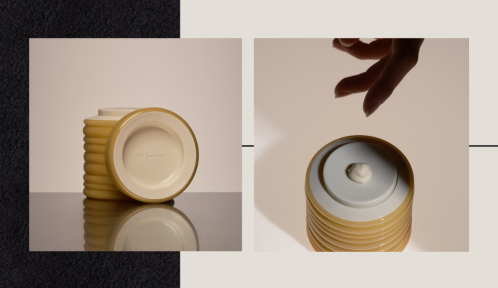Our editors independently select these products. Making a purchase through our links may earn Well+Good a commission
It’s no secret that the past year has been a stressful one. As a result of the higher cortisol levels, changes in routine, more screen time, and increase in people experiencing grief and anxiety as a result of the pandemic, about 40 percent people have reported difficulty falling and staying asleep over the past year. The word “insomnia” was even Googled more times in the year 2020 than ever before. Now, as we begin to re-enter the world, there are a whole host of new stimulants, fears, and worries to keep us awake. On the latest episode of Plant-Based, herbalist Rachelle Robinett discusses the different herbs that can help destress your brain and regulate your sleep patterns for a more restful night.
Experts in This Article
registered herbalist, educator, and founder of Supernatural
Nervines, or the herbs that work to nourish, calm, and soothe the nervous system, are one type of herbs for sleep. There are two varieties of nervine herbs: non-sedative and sedative. The non-sedative varietals are great for keeping the nervous system balanced during the day, while the sedatives can actually help to put you to sleep and keep you asleep. They do this by helping relieve “nervous tension, muscle spasms, and recursive thinking,” says Robinett. Some members of the sedative, nervine family are catnip, California poppy, passionflower, hops, lavender, and—one of the strongest—valerian.
Robinett suggest starting an herbal sleep routine as the sun is going down and the light is changing since that is when your body is already starting to produce melatonin and these herbs will act immediately (or within 15 minutes) to start to make you sleepy. One great way to use catnip, the aromatic, multi-tasking member of the nervine, carminative, and digestive herb families is in a tonic or a tea. Scroll down to learn how to make a cold, sparking catnip nightcap for better sleep.
Sparking catnip nightcap recipe for better sleep
Ingredients
Catnip tea ($23)Boiling waterSparking waterHerbal iced tea (optional)Valerian tincture ($18) (optional)Organic honey (optional)
1. Steep catnip tea in boiling hot water for 30 seconds
2. Swap the teabag to a glass of sparkling water and let steep for at least 10 minutes
3. Add your (regular or herbal tea) ice and optional valerian tincture and honey
4. Stir and serve!
For more healthy recipes and cooking ideas from our community, join Well+Good’s Cook With Us Facebook group.
Sign Up for Our Daily Newsletter
Get all the latest in wellness, trends, food, fitness, beauty, and more delivered right to your inbox.
Got it, you've been added to our email list.










